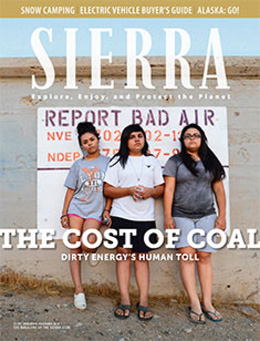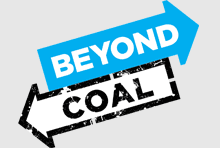



Marilyn Mullens
Cool Ridge, West Virginia
Tomorrow we're planning an event in Charleston at the West Virginia State Capitol steps, a silent protest, where women from Appalachia will come together to shave our heads. We want to show a solidarity with our mountains that are being stripped, our people that our getting sick. Just to show that we're willing to give up something to get people to pay attention. I grew up in the coalfields in Boone County, in Sand Creek Hollow mostly. Living there, it's coal mining. That's the big industry. So you don't really pay attention if it has any effect on the environment, especially when you're a kid. I moved away and came back in '93. I was busy being a single mom and going to nursing school and doing my military duty.
In the late '90s, they started doing mountaintop-removal mining, which is where they just blow the tops off the mountains. They use tons of dynamite. There's dust everywhere. They clearcut the trees. It's just a big mess. Then in 2001 we had a horrible flood in the hollow where I live, and a lot of my friends and neighbors lost their homes. And we all knew that it was because there were no trees or topsoil on the mountain anymore. We knew that was what caused the flood, but according to the coal companies, it was an act of God, because it rained hard. In 2004 I was on active duty in California, and my dad called and said my home had come off its foundation. There was a big sinkhole. They were still doing blasting. My house sat for five years before I could sell it, and I had to take a loss. A lot of people don't even have that option. That's there home, that's where they've always been, that's all they have.
When I was growing up, we learned how to garden, we learned how to quilt, we learned how to can and preserve food. That was part of our Appalachian culture. We took care of the land. I think a lot of the women that you're gonna see tomorrow [at the protest], these are the women that don't want to see that destroyed. We want our children to experience West Virginia and Appalachia like we experienced it as children. What was it like? It was great. We played in the river, we played in the creeks, we played in the mountains. That was my backyard. I have an uncle, I remember he used to take me to find the fairies, in this little hollow. We'd walk along the railroad tracks and go way back in, and we'd be looking for fairies. And it just looked like a place where fairies would be. It was beautiful--green, with a creek running through it. The little waterfalls that would come off the mountain. We'd gather moss and make our rugs. Pick the dandelions and the plantain and make our salad. It was beautiful.
Those mountains are like living beings, and every time I've seen them where they've been blown up, I can just hear 'em screamin'. Just cryin'.
I used to fly home when I was on active-duty military, and every time I'd fly back to West Virginia, every time I'd see those mountains, I'd start crying because I knew I was home. And now I just see destruction from the plane, just mountain after mountain destroyed. How can that be right? It's not. It's just not right. (Interviewed May 27, 2012)








